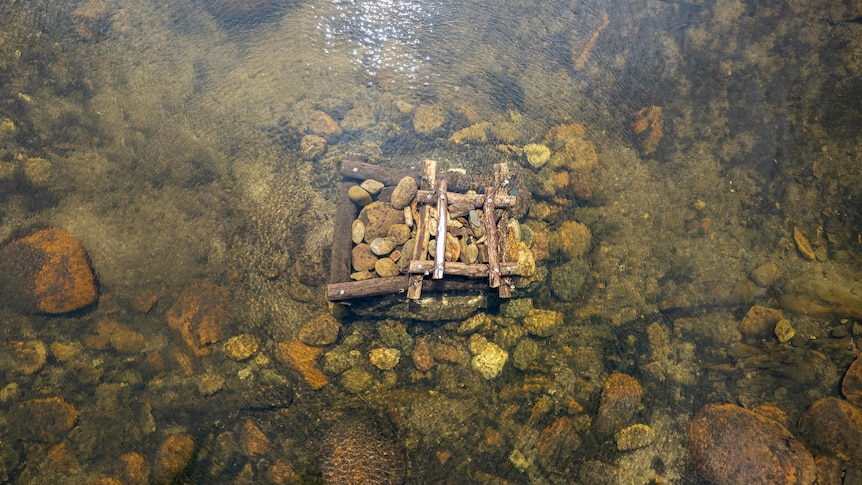Copyright abc

This spring offers a critical window to see if man-made "bungalows" installed in rivers throughout the ACT can help a struggling fish species. If they work — as some ecologists are convinced they will — the structures might just save an iconic and vulnerable species. And that could provide a path forward to restoring other battling Australian freshwater fish populations. Smothered by bushfire Growing up to 25 centimetres in length with "really cute giraffe spots" and "beautiful little white edges to their fins", two-spined blackfish are one of ACT Parks' aquatic ecologist Matt Beitzel's favourite species. They are found in northern Victoria, southern NSW, and the ACT, where they make their homes in the little pockets of space under rocks on the bottom of streams and rarely journey more than 15 metres away from their home. However, those little pockets are extremely vulnerable to being filled up with sedimentation — from agriculture and forestry — but also from bushfires. The Black Summer bushfires washed an estimated 50,000 tonnes of sediment into the catchment of the Cotter River in the ACT, Mr Beitzel said, smothering blackfish food sources, shelter and breeding sites. "That sediment is still there. It is getting better but it may take a decade or more for the habitat to improve," Mr Beitzel said. A species on the edge Annual monitoring recorded an 80 to 90 per cent decline in blackfish numbers in the Upper Cotter catchment after the 2019-2020 fires. In the spring of 2020, there was breeding, but the juveniles did not survive the season. "We were left with a population of really big adults … We were worried these big adults would start to die off naturally and we'd start to lose the population. "Their recovery was on the edge." Parks ACT decided it had to act. High-rise hotel havens Fish hotels are small pyramids of wood anchored to the bottom of waterways by big rocks to provide habitat for fish. They have been used for many different species all around the world. But they have never been used for blackfish, and Mr Beitzel said they likely would not work because blackfish preferred rocks to wood. So, Parks ACT made a simple adaptation to create nine "blackfish bungalows" — using the log cabin pyramid structure of traditional fish hotels filled with cobbles to create the pockets of space the blackfish need. A possible turning point The following 2024 breeding season went "really, really well," Mr Beitzel said. The climate conditions were perfect for blackfish, but it appeared the bungalows performed well, too, he said. Numbers doubled and video footage beneath the surface showed blackfish using the bungalows. "The results of getting more than 50 per cent of your fish off three per cent of your area — which happens to be the bit where the habitat is — is pretty good evidence to me that the fish are liking them." 'Dire' situation facing freshwater fish However, University of Canberra freshwater fish biologist Ben Broadhurst said other factors were likely responsible. "The more likely drivers were favourable climatic and flow conditions, along with a reduction in predatory trout numbers." Therefore, the breeding season this spring will be a defining moment for the fish hotels: was 2024 just a good year — a fluke coinciding with the installation of the bungalows — or are the 'high-rise' structures helping save the species? If they are, Mr Broadhurst said, "with thoughtful design tailored to species-specific habitat needs, they could be applied even more broadly". Research published in Biological Conservation in December last year showed 37 per cent of Australia's native freshwater fish are threatened or endangered. The report found "targeted conservation measures are urgently needed to avoid imminent extinctions". Mr Broadhurst said habitat innovations such as the bungalows were not a "silver bullet". "They're just one piece of a much larger puzzle that includes catchment management, flow restoration, and control of invasive species," he said. "Without targeted intervention, many of these species face a genuine risk of extinction. That's why innovations like species-specific fish hotels and refuge habitats are so important."



